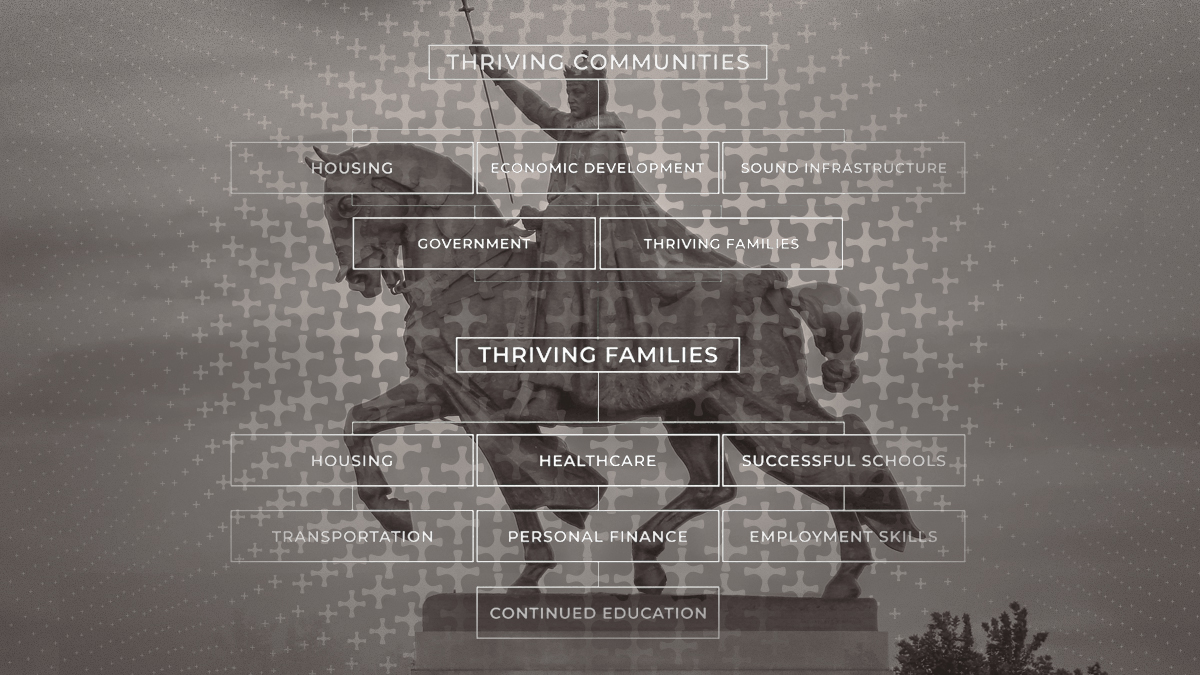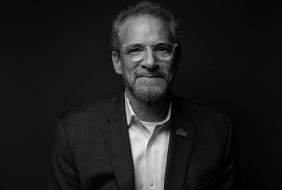In a recent article I wrote for the St. Louis Business Journal called How St. Louis Became America’s Comeback City, I started with the premise of, what if this became a reality? And if so, what would a solution or effort to help create such a reality look like?
Without going into details of this solution, I wrote how, to be that effective, it would have to look and feel very different than anything we’ve done before. It would have to be bold, ambitious and innovative. It would have to be newsworthy. Also, as with the efforts it took to revitalize Detroit, a few key local business leaders would play an instrumental role in leading the way.
Most importantly, this solution or effort would finally address what research from Greater St. Louis Inc., Washington University in St. Louis, University of Missouri–St. Louis, Forward Through Ferguson, and others show is the underlying source of our challenges—our high concentrations of poverty and communities in decline.
In another article, I pointed out that nearly all of the region’s biggest challenges identified by subscribers in the St. Louis Business Journal’s AdvanceSTL survey—from our national reputation to troubling crime rates, difficulty in attracting and retaining talent, population growth and race/equity/inclusion—are a result of this underlying issue. And how finally addressing this would benefit all of St. Louis from our business community to the region as a whole.
Now let’s get into some details.
WHY OUR REGION NEEDS A COMPREHENSIVE, HOLISTIC SOLUTION
To move St. Louis forward, we need to stop applying Band-Aids and begin creating lasting change. This means treating the underlying condition instead of focusing on symptoms. Instead of merely handing out food, let’s address why people are hungry in the first place. Instead of only focusing on crime, let’s address the conditions that are fueling it.
To do this effectively, we also need to recognize that complex, multigenerational problems cannot be solved through simplistic solutions.
Beyond Housing’s Once and for All effort utilizes a model that is wholly unique in community development. The model is based on our own work in transforming the many under-resourced communities in North St. Louis County as well as learnings from national thought leaders, including Health Equity Works at Washington University in St. Louis, the Aspen Institute, the Stanford Social Innovation Review, NeighborWorks America and the Federal Reserve Bank of San Francisco.
At the heart of this model is the understanding that people and communities have many needs that must be met to thrive.
Chris Krehemeyer
Families need a living wage, housing that’s affordable, access to health care, successful schools, transportation, and more.
Thriving communities need an adequate supply of housing people can afford; economic development to provide jobs and access to essential goods and services; sound infrastructure from sewers to roads and parks; effective local government and essential services; and thriving families.
What’s important to understand is—none of these needs exist on their own; they are all interrelated.
This is why so many single-focused efforts that address only one need, such as education or housing, often fail to produce meaningful change. Creating real change requires a comprehensive, multipronged effort addressing the interrelated needs of families and communities, from housing to employment, education, health, economic development, municipal government, and more.
Two high-profile efforts in education illustrate this perfectly: Facebook founder and CEO Mark Zuckerberg’s $100 million effort to improve schools in Newark, New Jersey and the Gates Foundation’s seven-year, nearly $1 billion initiative to improve education in several low-income communities. Despite generous funding, both efforts failed to produce meaningful results. We believe the primary reason is a lack of understanding that what happens outside the classroom is equally important. No matter how well funded, it’s difficult for students to succeed if their life outside the classroom is unstable and their basic needs are not being met.
A comprehensive approach is essential. Rather than focusing on a few individual needs, our model is designed to transform entire communities by strengthening individuals and families, transforming the physical environment and creating change at the systems and policy level.
Another important aspect is taking a holistic approach. Needs don’t exist in silos. Because of their interdependency, it’s important they are served in a holistic, integrated manner.
Of course, fulfilling this comprehensive model requires more resources than any one organization can provide on its own. Which is why, over the last 12 years, we have invested significantly to create an infrastructure of staff, programs, partner organizations and relationships essential for fulfilling this model.
OUR REGION NEEDS TO TAKE A BOLD STEP FORWARD
We’ve been talking about St. Louis’ challenges for more than 40 years. Clearly, it’s time for a new approach.
Once and for All was created to bring St. Louis together to invest in our region and finally move it forward. Recently, we launched an innovative way for individuals and businesses to come together and invest in our region’s future using the initial public offering (IPO) framework. The IPO combines a results-oriented, investment mindset with the latest thinking on how to address complex social issues.
The IPO is intentionally bold. No other metropolitan area has done anything like it. By finally addressing the root cause of our challenges, this is an opportunity to reinvent St. Louis on a national stage and provide a way forward for other metropolitan areas to follow.
For more thoughts on moving our region forward, visit our St. Louis Business Journal content hub.




